13 bedding laundry mistakes damaging your sheets, from detergent disasters to damage control – and what to do instead
Avoid damage, shrinkage and stiff sheets with these expert-approved tips

- 1. Washing with towels
- 2. Overloading your machine
- 3. Using fabric softener
- 4. Infrequent washing
- 5. Harsh detergent
- 6. Ignoring care labels
- 7. Using too much detergent
- 8. Ignoring pilling
- 9. High washing temps
- 10. Not re-fluffing pillows
- 11. Not drying properly
- 12. Not checking for damage
- 13. Skipping extra rinses
- The best setting to wash bedding

Ottilie Blackhall
It's certainly no surprise that the majority of people find stripping a bed and washing bedding an unenjoyable chore, and, as with most things in life, this lack of enthusiasm often leads to rushing – and rushing often leads to mistakes.
Whether it's overloading your machine, using too high a temperature, or simply not washing your bedding often enough, these errors could be damaging your linens, laundry and bedding experts have warned.
Here, they have explained exactly what we are doing wrong, and share their best laundry tips for soft, luxurious bedding that guarantees a great night's sleep.
Common bedding laundry mistakes
1. Washing bedding with towels

It can certainly be tempting to shove all our laundry into one wash to help save time when doing laundry, but washing sheets and towels together could destroy the delicate fibers of your best bed sheets.
Anna Brakefield, textiles expert and co-founder of Red Land Cotton warns. 'Washing your sheets with the rest of your laundry can put a lot of strain and wear on your sheets. Make the effort to only wash towels with towels, and bedding with other bedding to avoid this preventable damage.'
Getting clued up on separating your laundry will help protect anything you wash long-term. Divided baskets, such as the Joseph Joseph Tota - Trio 90-liter Laundry Hamper Separation Basket with lid available at Amazon, make this simple.
2. Overloading your machine

Overloading your machine is one of the worst washing machine mistakes, but, when washing bulky bedding, this can be tricky to avoid.
Rechelle Balanzat, founder and CEO of Juliette, says, 'Cramming too many sheets, pillowcases, or comforters into a single load prevents thorough cleaning, and can strain your machine.
'The detergent and water can't evenly circulate, leading to a buildup of detergent residue and incomplete rinsing.'
Therefore, always wash bedding in smaller, balanced loads.
Ron Shimek, president at Mr. Appliance, a Neighborly company, advises, 'The size of your sheets makes a difference, as does the material they are made of. Ensure you read the laundry symbols on the care tag and double check your washing machine settings in your washer's use and care manual.'
Ron adds that, in most cases, large items such as blankets, quilts, and comforters should be taken to the laundromat to prevent damaging your home appliance. Although this is extra effort, it will save you money on hefty repair bills.
Rechelle recommends using a large laundry bag, such as the Washable Travel Laundry Bag with Handles and Drawstring available at Amazon, to transport oversized loads to the laundromat. Available in a pack of two, they are heavy-duty and large enough to hold three regular loads of washing.
3. Using fabric softener

Washing bedding is one of the many times you should never use fabric softener in laundry.
Rechelle explains, 'Fabric softeners coat fabrics with a waxy layer, reducing absorbency and breathability in materials like cotton or bamboo sheets.'
Instead, like when keeping towels soft, use wool dryer balls during the dryer cycle to help fluff up fibers, or use white vinegar in laundry to soften up bedding without affecting absorbency.
All prices correct at time of publication.
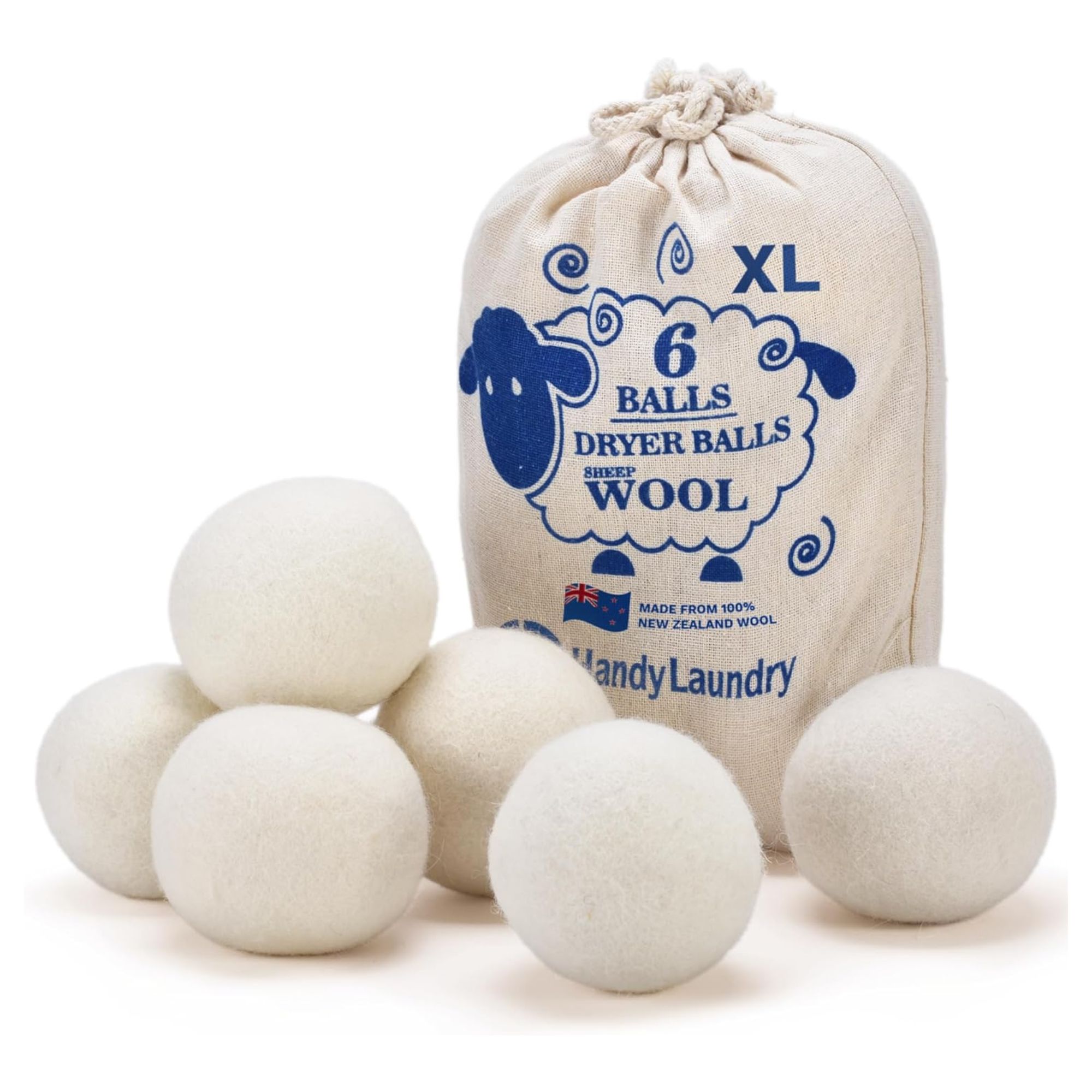
This natural alternative to fabric softener softens bedding, reduces wrinkles, and saves drying time, helping you to cut energy bills.
4. Not washing your bedding enough

Understanding how often to wash bed sheets is just as important as knowing how to wash bedding properly if you want your prized sets to last.
Rick Rome, CEO and founder of WashClub states, ‘One of the most common mistakes people make is not washing their bedding until there are visible stains. You should wash your sheets once a week, maybe twice in winter.
‘People typically sleep about eight hours every night, leading to a quick buildup of dirt, sweat, oils, dead skin cells, and odors. The buildup can cause skin irritation and acne, so keeping the sheets fresh is best.’
One thing people who are good at laundry always do is alternate between three bedding sets, helping to make regular washing easier.
Parima Ijaz, bedding specialist and founder of luxury bedding company Pure Parima, explains, 'It is essentially having three sets of sheets that you cycle through, where you have one on the bed, one in the wash, and one in the closet. This way, you will always have clean linens ready to go, without the worry of overwashing your sheets, so you can protect them and keep them longer.'
5. Using too harsh a detergent

Bedding is subject to all sorts through its life and can be prone to picking up tough to remove stains.
However, textile expert Anna warns, 'Harsh detergents aren't necessarily more effective in keeping your sheets cleaner. In fact, the harsh chemicals may react to certain stains, and cause them to change color rather than cleaning them.'
Instead, laundry expert Rechelle recommends always pre-treating stains for five to 10 minutes before washing, with an enzyme-based stain remover such as the Shout Active Enzyme Laundry Stain Remover Prewash Spray available at Walmart, which will also avoid setting stains for good.
Additionally, avoid using chlorine bleach in laundry when washing whites. Rechelle explains, 'Chlorine bleach weakens fibers over time, and can turn white sheets yellow with repeated use,' leaving you needing to get dingy whites white again despite your best efforts.
'Use an oxygen-based bleach (or vinegar) for whitening and stain removal,' she adds. 'It's gentler on fabrics.'
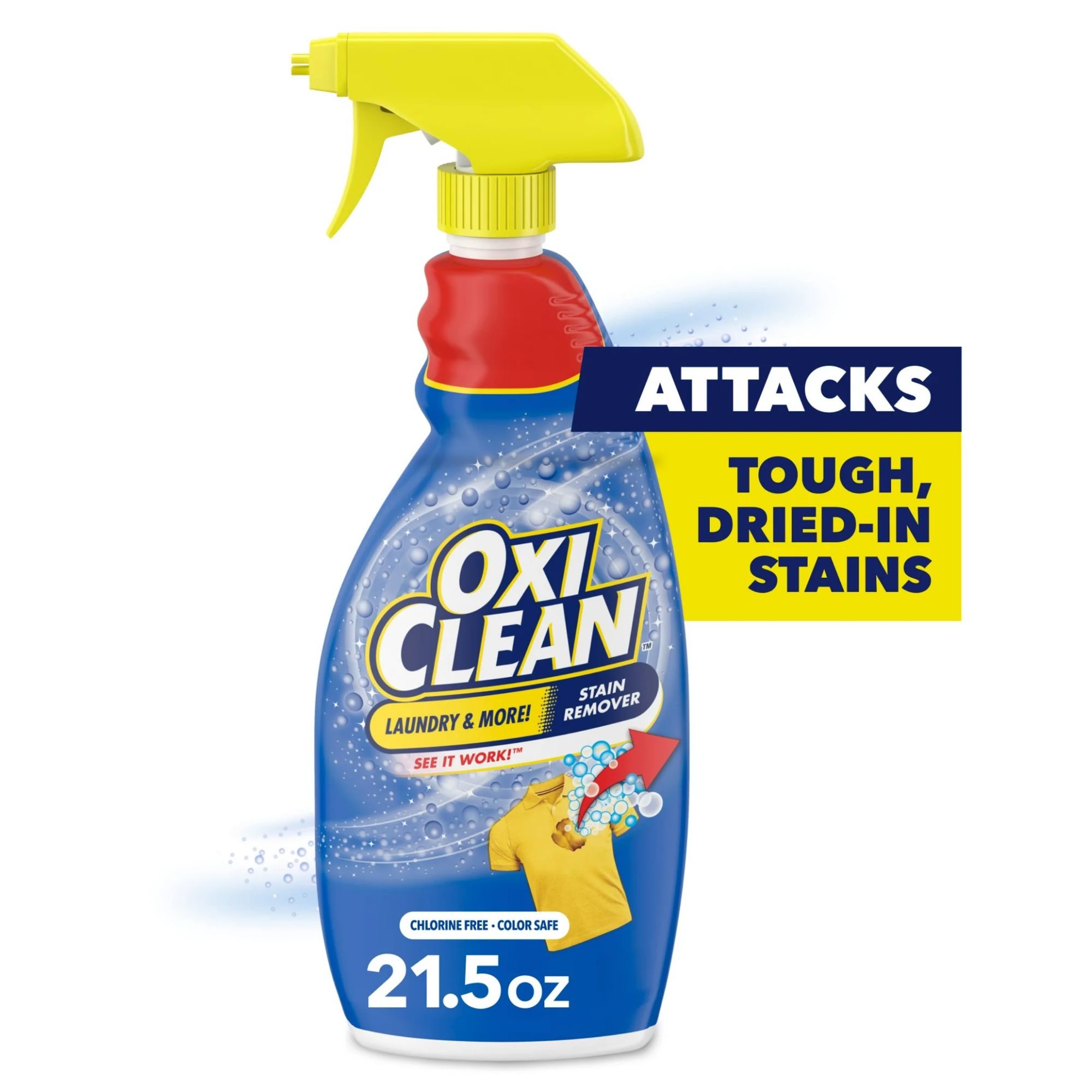
This fast-acting stain remover tackles tough stains without damaging fabrics. It's suitable for upholstery and surfaces in your kitchen and bathroom, too
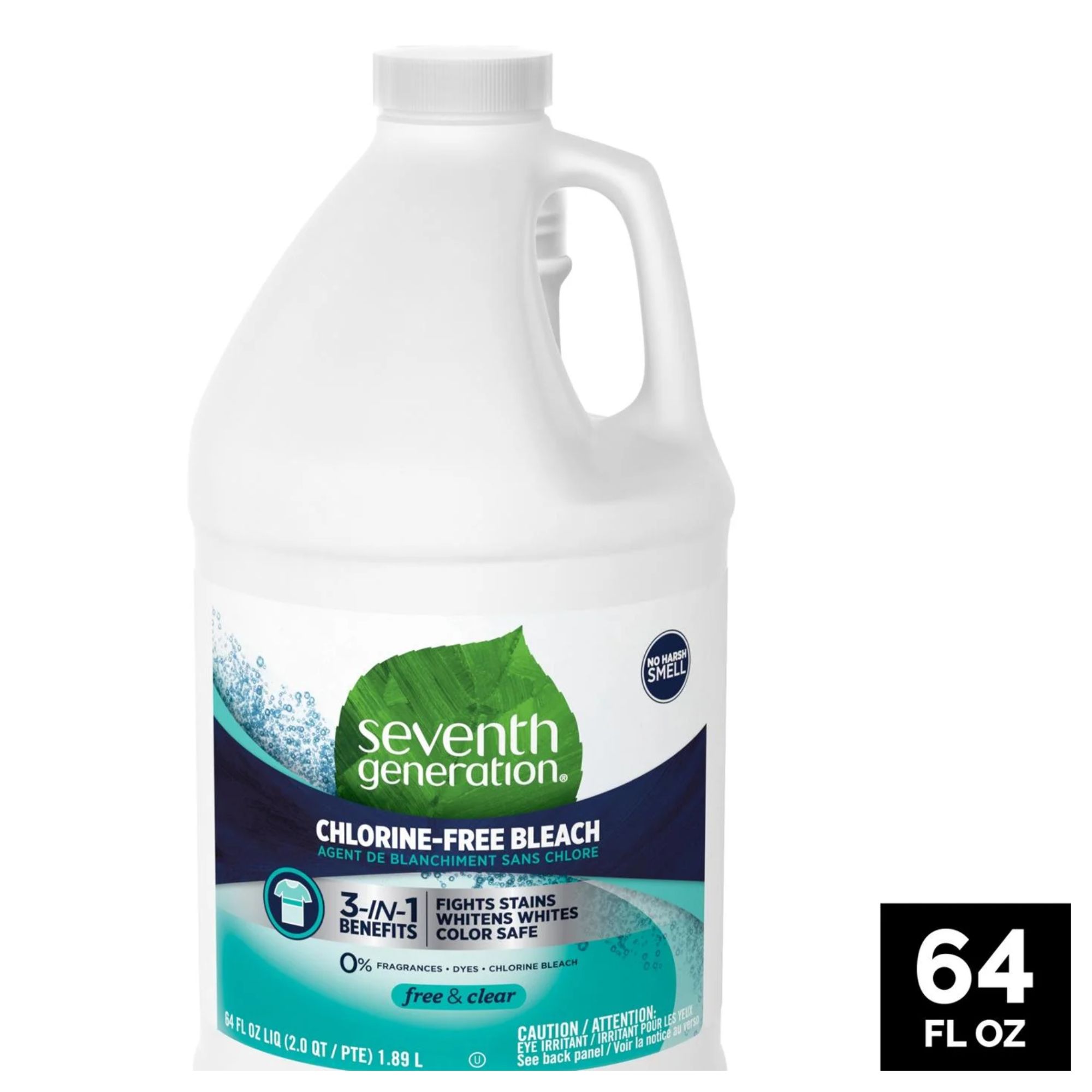
With no bleach smell, and free of dyes, chlorine, phosphates and artificial brighteners, this biodegradable formula lift stains effectively.
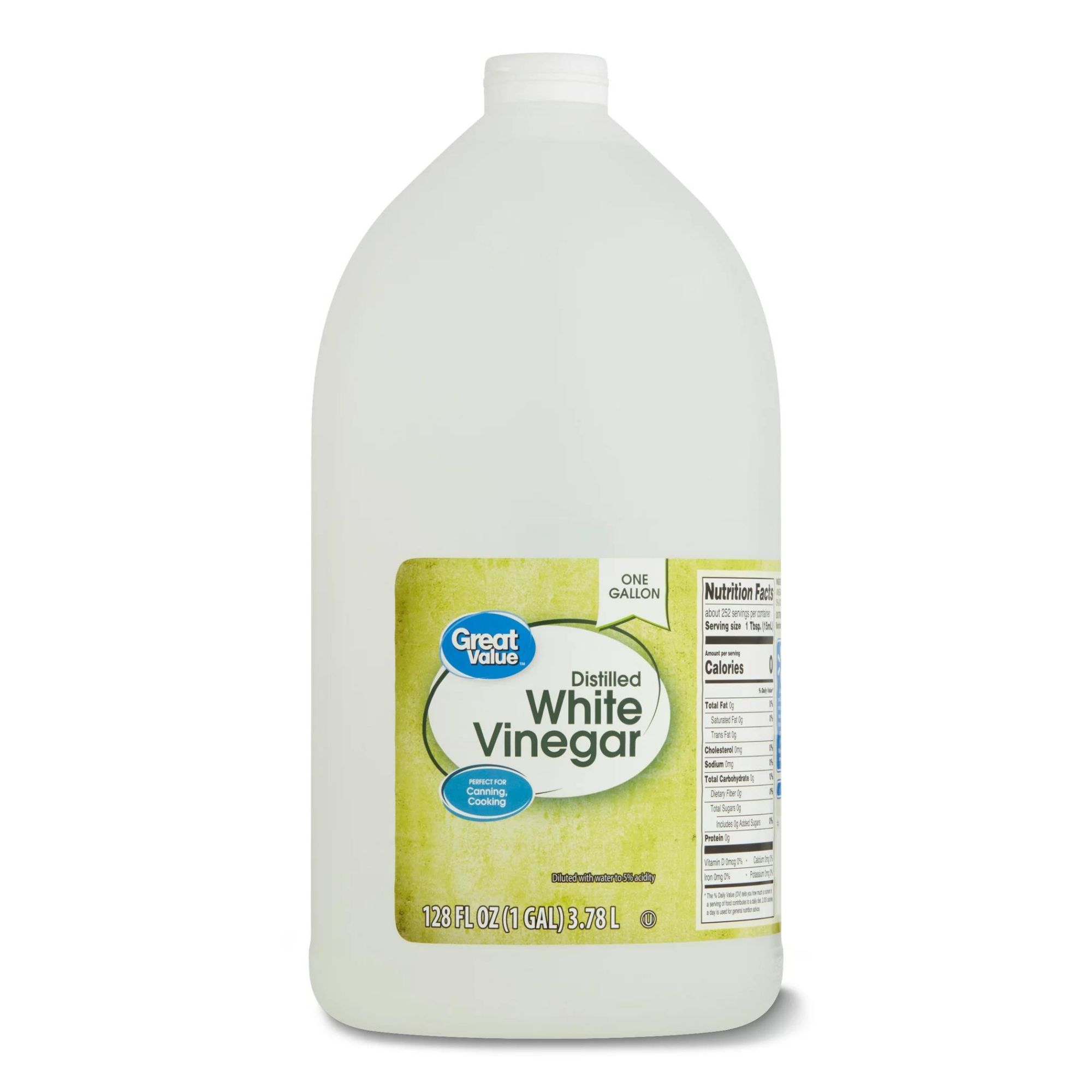
This versatile home hero can be used for cooking, cleaning, deodorizing, and stain removal.
6. Ignoring care labels

Care labels are included on your bedding for a reason, and are designed to maintain the longevity of your bedding. Rechelle warns, 'Ignoring them can lead to fading, shrinking, and damage.'
To avoid this bad laundry habit ruining your laundry and washing machine, always read the care label on items, and, if unclear, err on the side of caution by washing in cold water and air-drying.
7. Using too much detergent

Much like using too harsh a detergent, using too much detergent can be equally damaging.
The main issue here is that excess detergent creates residue buildup, making bedding feel stiff or sticky, and attracting more dirt over time.
So, as laundry expert Rechelle recommends, use the manufacturer's recommended amount of detergent, and opt for high-efficiency (HE) detergent, such as the Tide Free & Gentle HE Compatible Liquid Laundry Detergent Soap available at Walmart.
'Always rinse with an extra cycle if you're concerned about detergent residue,' she adds, although doing so repeatedly certainly won't help you save energy when doing laundry.
While you should never do laundry without detergent, it is vital to measure out the right amount, using measuring tools such as the OXO GG Mini Squeeze & Pour Silicone Measuring Cup available at Amazon
8. Ignoring pilling

It can be hard to stop your bedding from pilling, but you can stop it from spreading by removing bobbles and lint from your sheets before throwing them in the washing machine, advises Will Cotter, cleaning expert and COO of HappyCleans.
He says, ‘Pilling, those annoying little fabric balls, can be a nuisance on bedding. Before washing, take a moment to gently remove any pilling using a fabric shaver or a lint roller [available at Walmart].
'This prevents pilling from spreading and becoming worse during the washing and drying process, keeping your bedding looking smooth and fresh.’

With two speed settings, this fabric shaver effortlessly removes lint, fluff, fuzz and bobbles from bedding and clothing, with sharp and durable blades that last for years.
9. Washing on too high a temperature

While bedding is one of the items you should always wash in hot water, it's important to strike the balance carefully when it comes to selecting your washing machine temperature setting.
For example, washing your cotton linens in extremely hot water for every cycle will harm the fibers, and cause sheets to shrink and fade faster.
To avoid this, textiles expert Anna says, 'Opt for a warm wash cycle,' somewhere around 104 degrees Fahrenheit (40 degrees Celsius).
10. Not re-fluffing pillows

Whether you are washing your pillows, steaming them, or leaving them out to air, not fluffing them is a common bedding laundry mistake that leads to sore necks and painful shoulders.
Cleaning expert Will Cotter says, ‘Pillows are an essential part of your bedding ensemble, and keeping them plump and supportive is key. Before and after washing, take a moment to fluff your pillows manually. This helps maintain their shape, ensures even distribution of filling, and keeps your sleep experience comfortable and cozy.’
You can also throw in a tennis ball or two, or some laundry balls, such as the S&T INC. Reusable Dryer Balls available at Amazon, to help plump your pillows as they spin in your drum. This is an effective method for breaking up any compacted stuffing.
11. Neglecting proper drying techniques

Just like washing too hot, over-drying in high heat is a tumble dryer mistake that can weaken fabric fibers, cause shrinkage, and set wrinkles that are hard to remove.
Laundry expert Rechelle advises, 'Use a low heat or air-dry setting for delicate fabrics,' or make use of the benefits of air-drying laundry when the weather is good.
Rechelle adds, 'For larger bedding like comforters, add dryer balls to improve airflow and reduce drying time.'
12. Not checking for damage

Will Cotter points out that the best time to inspect your bedding for damage is between stripping your bedding and putting your bedding in the washing machine. Not doing so is a common mistake leading to deteriorating sheets.
Whether that means checking for pilling, or running over the seams to check for loose threads and holes, checking for damage will prevent any fixable wear-and-tear from getting worse in a spin cycle, or alert you to the need to replace your sheets – saving you time washing them in the first place, and, therefore, helping you to save money on laundry, too.
13. Skipping a second rinse for allergy sufferers

If you live with someone who suffers with allergies, or do yourself, you will know how important cleaning tips for allergy sufferers are, and washing your bedding is no exception.
Laundry expert Rechelle warns, 'Detergent residue and leftover allergens (like dust mites) can trigger allergies, especially for those with sensitive skin.'
If this applies to you, always run a second rinse cycle where possible, and use hypoallergenic detergent, such as the Arm & Hammer Sensitive Skin Free & Clear available at Amazon.
FAQs
What is the best setting to wash bedding?
Generally speaking, it's best to wash bedding in the warmest water appropriate for the fabric, using your washing machine's sheet cycle, or following the instructions on your bedding's care tag.
If there is no cycle specified, a regular cool cycle used to wash and care for cotton should suffice, but be sure to double-check the temperature selected before turning on your machine.
You might now know which bedding laundry mistakes to avoid, but should you wash bedding inside out? Our experts all agree this tiny step is worth the extra effort, helping to keep your bedding in better condition for longer.
Sign up to the Homes & Gardens newsletter
Design expertise in your inbox – from inspiring decorating ideas and beautiful celebrity homes to practical gardening advice and shopping round-ups.

Chiana has been at Homes & Gardens for two years and is our resident 'queen' of non-toxic living. She spends most of her time producing content for the Solved section of the website, helping readers get the most out of their homes through clever decluttering, cleaning, and tidying tips. She was named one of Fixr's top home improvement journalists in 2024.
- Ottilie BlackhallNews Writer
You must confirm your public display name before commenting
Please logout and then login again, you will then be prompted to enter your display name.
-
 The 5 worst things you can do to your fridge – these will drive up energy costs and result in pricey and regrettable repairs
The 5 worst things you can do to your fridge – these will drive up energy costs and result in pricey and regrettable repairsIt's crucial to swerve these blunders, appliance experts warn
By Ottilie Blackhall Published
-
 Orange and green is the bold color pairing quietly transforming homes in 2025 – here's 4 reasons why
Orange and green is the bold color pairing quietly transforming homes in 2025 – here's 4 reasons whyInterior designers are making the orange and green combination work wonders – this is how you can too
By Sophia Pouget de St Victor Published
-
 My cheap dehumidifier makes easy work of air drying laundry indoors despite the humidity of spring showers – get yours on sale for just $49 now
My cheap dehumidifier makes easy work of air drying laundry indoors despite the humidity of spring showers – get yours on sale for just $49 nowIt's useful for lots of things around my home
By Punteha van Terheyden Published
-
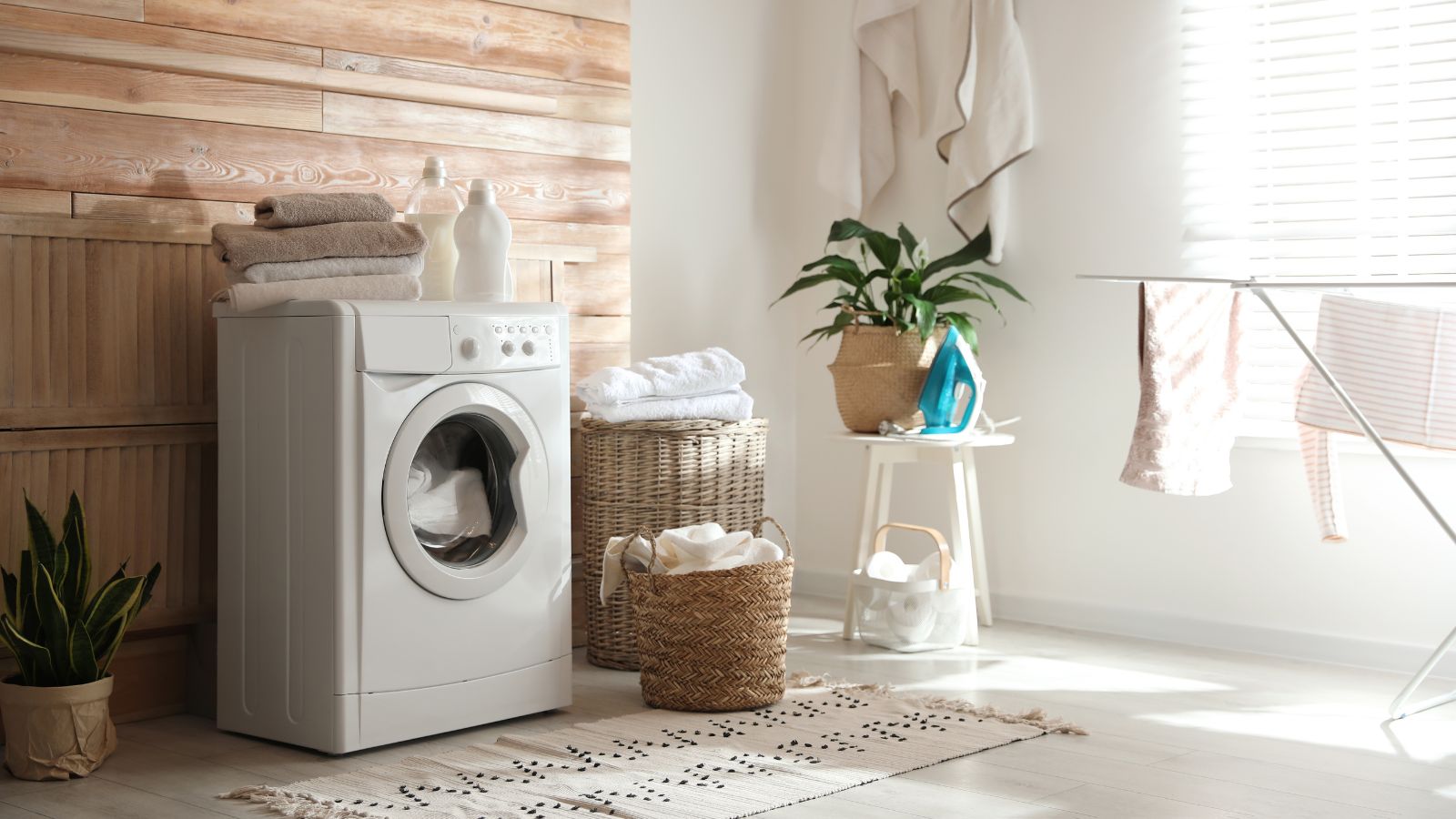 Looking for a natural laundry-softening alternative? I'm a professional cleaner and it's time to ditch synthetic ones for 5 non-toxic softeners that work
Looking for a natural laundry-softening alternative? I'm a professional cleaner and it's time to ditch synthetic ones for 5 non-toxic softeners that workRefresh your laundry routine with these fabric softener alternatives
By Karina Toner Published
-
 Unlock the magical mold-killing and stain-busting superpower of this humble household ingredient that costs just 50 cents
Unlock the magical mold-killing and stain-busting superpower of this humble household ingredient that costs just 50 centsIf you have aspirin in the house, you can use it to banish mold
By Ottilie Blackhall Published
-
 5 warning signs you're using the wrong amount of detergent – avoid greasy residue, stiff fabrics and skin issues with these simple cleaner-approved tips
5 warning signs you're using the wrong amount of detergent – avoid greasy residue, stiff fabrics and skin issues with these simple cleaner-approved tipsPlus, why it's important to get the amount just right
By Ottilie Blackhall Published
-
 6 ways to prevent mold and damp in bedrooms – expert solutions to maintain a safe sleep environment
6 ways to prevent mold and damp in bedrooms – expert solutions to maintain a safe sleep environmentDon't sleep on these six tips, experts urge
By Seraphina Di Mizzurati Published
-
 Laundry experts reveal 7 unexpected washing rules you can throw out the window – from separating fabrics to mixing whites and colors
Laundry experts reveal 7 unexpected washing rules you can throw out the window – from separating fabrics to mixing whites and colorsForget everything you thought you knew
By Ottilie Blackhall Published
-
 Using this button on your washing machine will cut your bills and help the planet
Using this button on your washing machine will cut your bills and help the planetA single switch can make a load of difference
By Chiana Dickson Published
-
 Experts reveal the 5 toxic items lurking in your laundry room – and what to swap them with for a healthier routine
Experts reveal the 5 toxic items lurking in your laundry room – and what to swap them with for a healthier routineFor a room focused on cleaning, some of its items can be surprisingly toxic
By Chiana Dickson Published